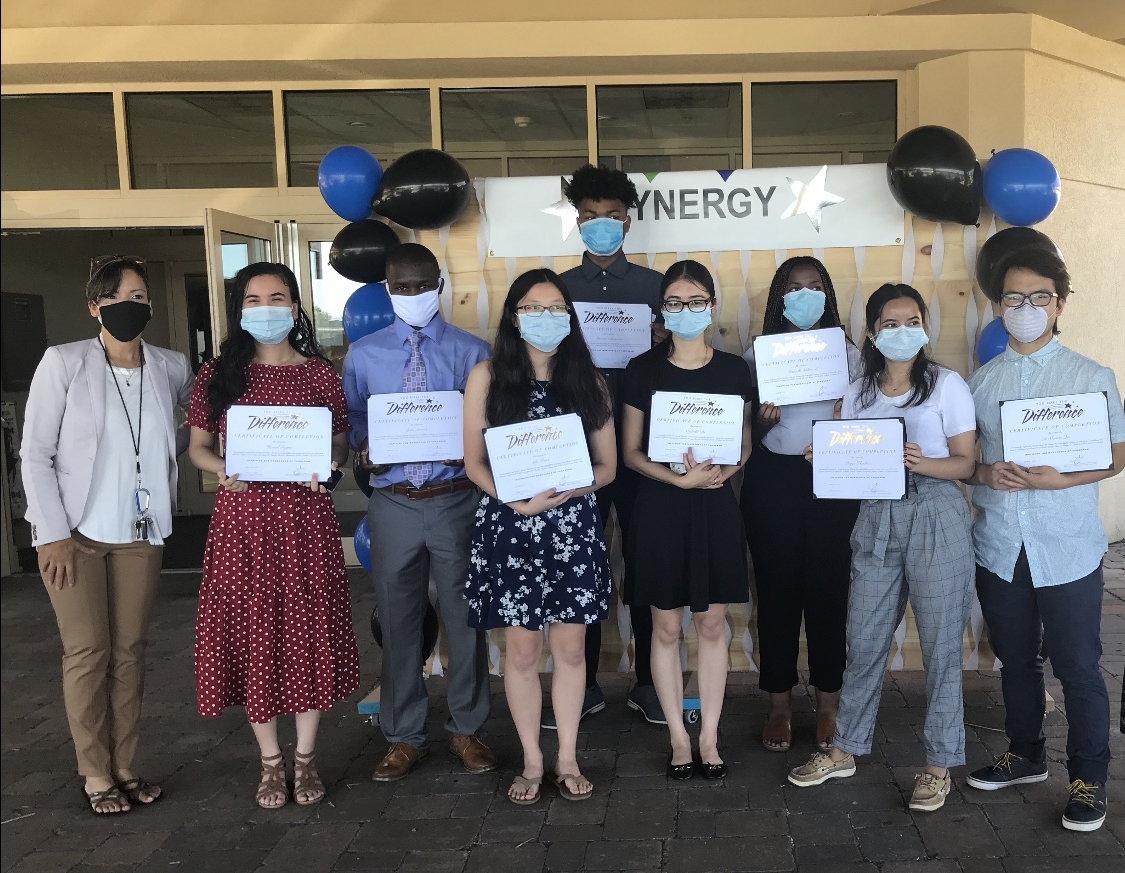Recent Headlines

Students from the synergy program are interning at ESF's Office of Inclusion, Diversity and Equity
OIDE Taps into Synergy
When other institutions were unable to host Synergy interns this summer due to COVID-19 restrictions, ESF stepped up and was able to utilize the talents of over a dozen college students.
Synergy is a program through Mercy Works, a local nonprofit that provides programs that focus on academic achievement, character development, technical training, and employment skills.
"Mercy Works does an excellent job of serving the Syracuse community, particularly Syracuse community members who are often overlooked for a variety of different reasons from social class, economic class, or race," said Dr. Malika Carter, ESF's chief diversity officer. "Unfortunately, some individuals who have have certain race identities often have a lesser chance to aspire and attain a degree, which then has a large impact on how prosperous one's life can be."
The Synergy program is for college students living in Syracuse during the summer with a specific focus on STEM (science, technology, engineering, math), said Dr. Lizette Rivera, director of student inclusion initiatives and special assistant to the chief diversity officer. "The program is helping reach the marginalized students in the STEM."
ESF was scheduled to have two to three interns, however, Carter saw an opportunity and took on 14 interns when SUNY Upstate Medical University was unable to host their interns. Carter also serves as Upstate's Title IX coordinator.
This wasn't the first year ESF had Synergy interns, but the program ran differently this year. The interns worked on programming projects and the College's approach to policies. They were given virtual assignments and met with Office of Inclusion, Diversity and Equity (OIDE) staff and each other virtually.
Their projects included the Men of Color program, Women of Color program, Native American program, LGBTQ program, and the Diversity 24/7/365 program and the heritage months.
"They worked in groups, and for each program they had to research and look at best practices and at other colleges. Since we were working with college students, we wanted them to give us their insight within these topics," said Rivera.
For instance, the interns developed different events for the Women of Color program including a Sisterhood Night get-together that they thought would engage students. For heritage months, such as Black History month, a schedule for programming and promotion was developed.
OIDE staff will be reviewing the programming proposals and decide what can be incorporated into the office's programming for the year.
Because the interns worked closely with OIDE staff, Rivera is confident the proposals can be modified and put into action.
"We're not starting from scratch," said Rivera, "and our graduate fellows have potential ideas that they can say, yes, 'I love that and I'm going to make that work.'"
The interns all have different experiences, noted Carter, "and I wanted to leverage all of that on behalf of ESF."
"Many of them have lived-experience walking through the world as underrepresented people, and not necessarily by race either but by maybe being a first-generation college student and so forth," said Carter, "so they have lived experiences they were able to apply, which I thought was in many ways more valuable than their technical experience."
The interns also worked on how policies are created and presented at ESF. "We don't have a consistent means to create, edit, revise and promulgate policies," said Carter. "What I have been working on for a year and a half with shared governance is how do we create policies, retire policies, and so forth."
With the help of the interns, a template for writing a policy and style guide are in the works. The process is still in development but Carter hopes the project will reach fruition this academic year.